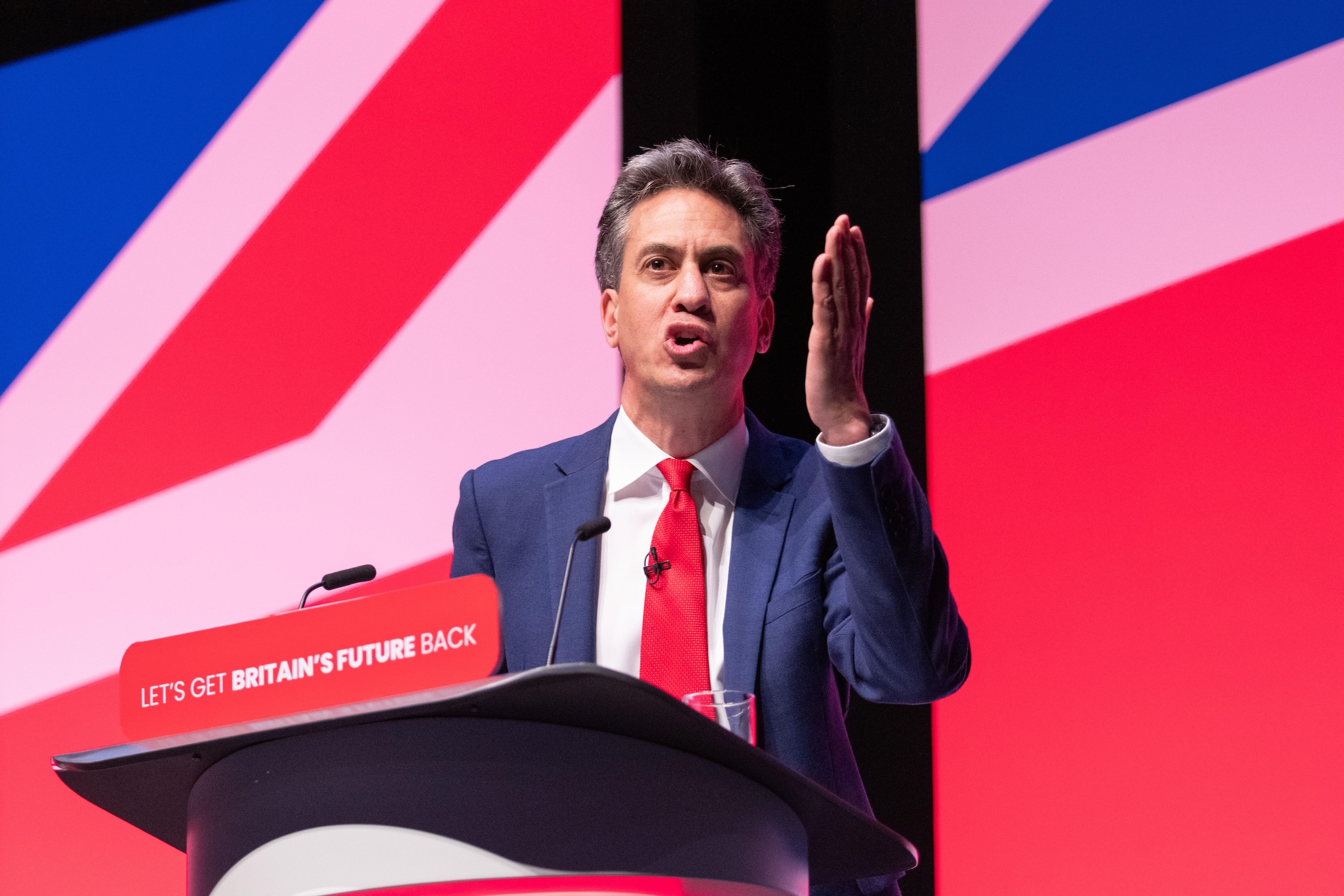Tackling young voter apathy starts with proportional representation
As it stands, voting for the winners of Love Island or Strictly Come Dancing is more democratic than voting for politicians who decide how to save the NHS, how many houses we build, or how to tackle the climate crisis.
In October, 28-year-old Yaz Ashmawi threw two handfuls of purple and green glitter at Keir Starmer at the Labour Party conference. “True democracy is citizen-led. Politics needs an update. We demand a people’s house! We are in crisis!” he shouted as he was wrestled to the ground by security. Ashmawi acted on behalf of the grassroots group People Demand Democracy, an organisation calling for replacing the House of Lords with a citizens’ assembly and ending the First-Past-the-Post (FPTP) electoral system.
In the months since his protest, political apathy among voters – particularly young people – has spread like wildfire. It’s easy to see why: while every adult in the UK will have the chance to go to a polling station on July 4, very few have the privilege of having their voices heard.
According to research published by the Electoral Reform Society, around 71 per cent of votes cast in the 2019 general election did not impact the outcome of the election. To bastardise George Orwell: all votes are equal, but some are more equal than others.
No wonder young people in the UK say they’ve lost faith in democracy. FPTP is undemocratic, and the second chamber of our Parliament, the House of Lords, is entirely unelected.
Along with People Demand Democracy and the Electoral Reform Society, many other groups are dedicated to campaigning for electoral reform, such as Make Votes Matter, Compass, the Constitution Society, and Unlock Democracy. Notably, ahead of the general election, Make Votes Matter has launched a new petition for proportional representation (PR) to demonstrate the extent of the support behind the electoral reform movement.
Yet, despite the growing appetite for change, Sunak and Starmer are opposed to switching to a PR system, presumably because both Labour and the Tories benefit. By contrast, the Lib Dems, Greens, and Reform all support abolishing FPTP. There’s also a common misconception that the UK already held a referendum to implement PR and voted against it in 2011. However, the 2011 referendum was to change the voting system to the Alternative Vote (AV) – which is not a form of PR.
FPTP is not fit for purpose. Under the current system, which has been in place since the post-war period, voters within constituencies must choose a single candidate, and the candidate with the most votes wins. It sounds fair in theory but quickly unravels in practice. If you live in a swing seat like Watford, Burnley, or Wrexham, your vote carries more weight than if you live in a safe seat like Horsham, Aldershot, or Malvern. If you live between two addresses (your student house and your parents’ house, for example), you’re tasked with weighing up the more ‘impactful’ place to vote. Maybe you want to vote Green but feel compelled to vote Labour to get the Tories out tactically. Or you might be one of millions of Liberal Democrat supporters, but unless you live in a select few constituencies such as Bath or Eastbourne, you might as well drop your ballot card in the bin.
New research published by the Electoral Reform Society has found that more than 100 ‘safe’ parliamentary seats have been held for a century or more by one party, meaning “huge swathes of the country are effectively competition-free zones” where voting for change is pointless.
Under FPTP, the winner only needs a plurality of the votes and not an absolute majority to win. Case in point: the Tories only needed 44% of the total vote share to win 56% of available seats in the 2019 election. Labour, the Liberal Democrats, the Greens, the SNP, and Plaid Cymru – all ‘progressive’ parties – won a total of 51% of the vote, and yet the UK was lumped with a majority right-wing government whose victory was bafflingly hailed as a ‘landslide’.
Some argue that we need FPTP to keep extremists out of power – anyone who did a History GCSE likely learnt that the Nazi Party in Germany were voted in via PR. Yet look at Nigel Farage. The new Reform leader is one of the most influential politicians of the 21st century, despite never being elected as an MP. Did FPTP ‘stop’ him? No.
As we have witnessed over the past 14 years, extreme candidates often find a political home within mainstream parties. During her time as Home Secretary, Suella Braverman gave a speech in which she framed migrants as an existential threat to Western civilisation and argued that multiculturalism had “failed.” Is that not extreme?
A PR system could allow major parties like the Tories and Labour to avoid shifting from right to left to appease populist factions. Instead, they could split into unified blocs and form coalitions that prevent extreme positions from gaining traction.
Granted, at present, Reform looks set to win around 17% of the vote share – just two points shy of the Tories – but they would still be lucky to win more than four seats. Under FPTP, they would win far more. Yet if we had a more equitable electoral system, would voters feel so disillusioned and consequently driven to extreme parties in the first place?
Electoral reform is crucial for addressing overlooked issues. Ahead of COP28 last year, major UK environmental organisations united to call for voting reform in order to tackle the climate crisis. At present, FPTP limits political discourse to a few voters in swing constituencies and discourages the cross-party collaboration essential for climate action. Research affirms that voting reform could significantly impact climate outcomes: a 2013 study showed PR countries reduce carbon emissions over four times as quickly as ‘winner-take-all’ systems, while a 2014 report found that the use of renewable energy is 117% higher in countries with fully proportional systems compared to countries without.
Since becoming leader in 2020, Starmer’s Labour has pushed away many traditional voters – not only young people, but the working classes and ethnic minorities too – largely due to a dearth of inspiring policies, a litany of U-turns on former pledges, and more recently the party’s stance on Gaza. Meanwhile, many liberal Tory MPs have been driven out of their party entirely, with Sunak now wheeling out desperate policies like bringing back national service and quadruple-locking pensions to pander to the more right-wing voters the Tories risk losing to Reform UK. As a result, many centre-right voters have been alienated too. Abolishing FPTP could help put an end to this widespread apathy, which often creates the conditions for more political extremism.
According to the polls, Starmer is set to become the UK's next prime minister. Though young people's alienation may not appear significant now, it will be crucial for him to garner their support in five years if he aims for a second term.
If he is keen to re-engage the demographics Labour has alienated, he could start with electoral reform. It would be an easy win that would come at no extra cost to the taxpayer too. The good news is that he’s already floated the idea of lowering the voting age to 16, but he could still go so much further: allow EU citizens resident in the UK to vote in general elections; abolish the unelected House of Lords; and, of course, implement PR. Starmer’s Labour is set to win an even bigger landslide than Tony Blair did in 1997 – if there’s any time for taking bold action, it’s now.
As it stands, we’re living in a country where voting for the winners of Love Island or Strictly Come Dancing is more democratic than voting for the people who decide how we save the NHS, how many houses we build, or how we tackle the climate crisis.
It’s high time to enact proportional representation. If we don’t, we risk long-term political apathy taking root, leaving the door open for extreme, autocratic leaders with weak mandates to assume power. After all, democracies don’t always fall in one fell swoop. Sometimes they die by degrees.
The Lead is now on Substack.
Become a Member, and get our most groundbreaking content first. Become a Founder, and join the newsroom’s internal conversation - meet the writers, the editors and more.





